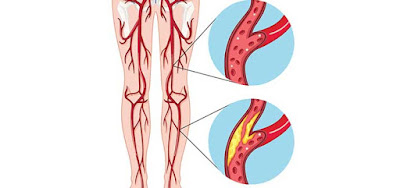 Vascular
diseases refer to a specific category of diseases that affect our blood vessels
which includes the arteries and veins. Our blood vessels function in
coordination with a heart and help to supply oxygenated blood from the heart to
different parts of the body and the deoxygenated blood from these body parts
back to the heart. Our blood vessels are extremely sensitive and prone to a
number of diseases and defects that can be hereditary, congenital or acquired
due to unhealthy lifestyle practices. You can find one of the best vascular surgeon in Delhi NCR who is specialised in all kinds of vascular problems.
He is listed amongst the top
vascular surgeons in Delhi and has performed various successful surgical
procedures to help patients suffering from a chronic vascular disease.
Vascular
diseases refer to a specific category of diseases that affect our blood vessels
which includes the arteries and veins. Our blood vessels function in
coordination with a heart and help to supply oxygenated blood from the heart to
different parts of the body and the deoxygenated blood from these body parts
back to the heart. Our blood vessels are extremely sensitive and prone to a
number of diseases and defects that can be hereditary, congenital or acquired
due to unhealthy lifestyle practices. You can find one of the best vascular surgeon in Delhi NCR who is specialised in all kinds of vascular problems.
He is listed amongst the top
vascular surgeons in Delhi and has performed various successful surgical
procedures to help patients suffering from a chronic vascular disease.
As
per the leading vascular surgery doctors in Delhi, vascular diseases can affect
people of any age group or gender and most of the time it is difficult to
determine the symptoms in the initial stages. Vascular problems are more common
in adults especially elderly people as their blood vessels tend to lose their
strength and become defected easily. A lot of patients prefer to undergo
vascular surgery in Delhi as you can find the most efficient and trusted
vascular surgeons in Delhi. Depending
on the type of vessel affected, Vascular diseases can be broadly divided into
different types.
Some of the most common types of vascular diseases include the
following:
Atherosclerosis
and Peripheral Artery Disease - peripheral arteries serve as a pathway for the
blood from the heart to various tissues and organs throughout our body. These
can get severely affected by unhealthy deposits of fat, cholesterol and other
impurities which can get easily deposited on the inner wall of the arteries.
This leads to narrowing of the artery which hinders the normal flow of blood.
The problem can lead to chest pain accompanied by breathlessness, nausea and
fatigue. If left untreated it can lead to heart failure, stroke or even death.
Aneurysm -
it refers to a bulge that occurs in the wall of the blood vessel and commonly
affects the aorta. An aneurysm can either be thoracic or abdominal. All the
problem does not pose any serious threat to the life of the patient but may
trigger plaque build up. It can also lead to clot formation which can travel
via the blood channels and get deposited on different organs.
Raynaud's
Phenomenon (Raynaud's Disease or Raynaud's Syndrome) - the problems caused by
temporary cut down of blood supply to your fingers or toes when you are cold or
excited.
Peripheral
Venous Disease and Varicose Veins - the problem occurs when your valves get so
damaged that they do not close completely when your muscles are in a relaxed
position. Usually, the valves prevent the backward flow of blood but in
patients suffering from peripheral venous disease, there might be a flow of
blood from both the sides.
Blood
Clotting Disorders - there are certain disorders that can trigger the formation
of clots in your body. The problem can be congenital or the result of an
accident. As a result of this problem
the patient experience higher levels of the clot-forming substances like
fibrinogen and factor 8, deficiency of blood thinning proteins, difficulty in
breaking down fibrin and damage to the endothelium.

0 comments:
Post a Comment